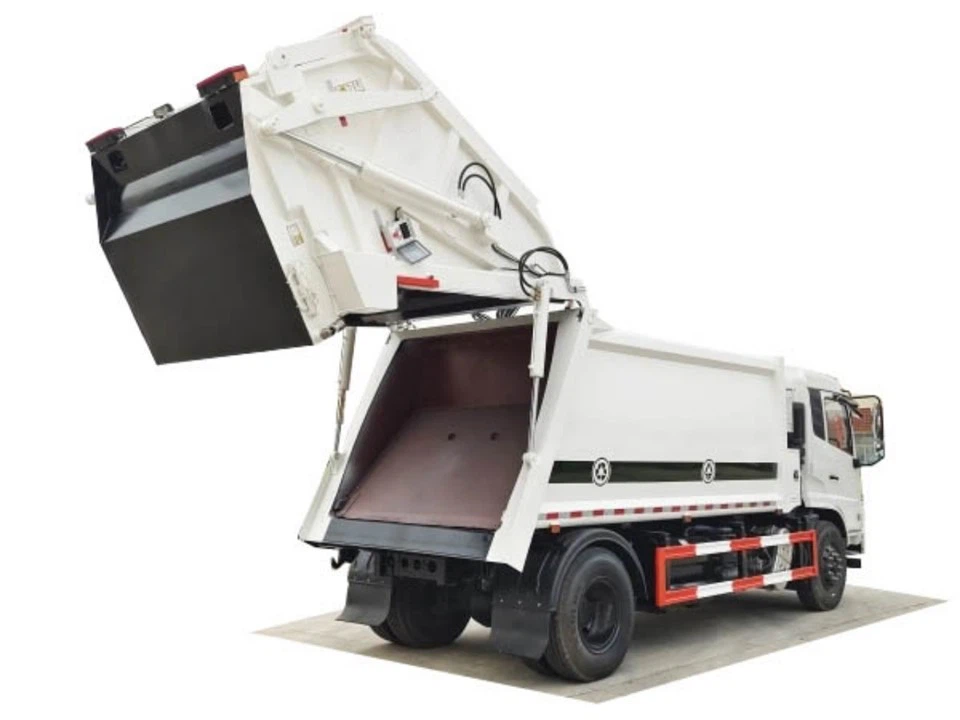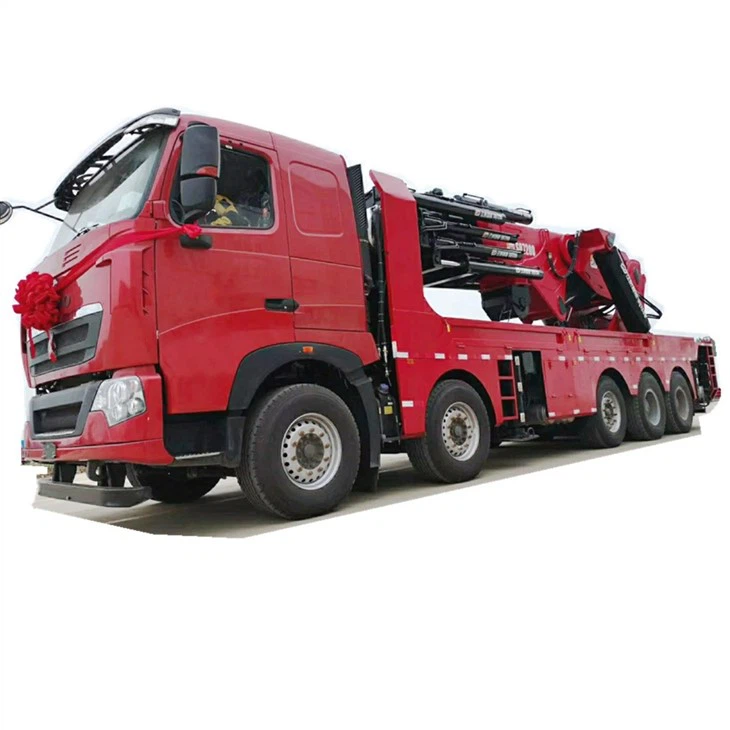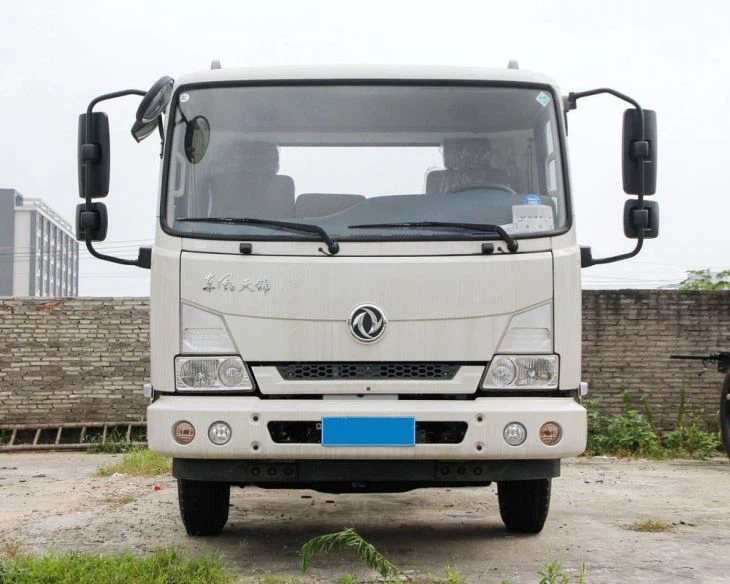Mini Concrete Trucks: The Essential Guide to Efficient Construction

Introduction
In the dynamic world of construction, efficiency and effectiveness are critical components for success. Mini concrete trucks have emerged as a valuable asset for contractors and construction professionals looking to optimize their operations. These compact vehicles offer flexibility, mobility, and precision, making them an ideal choice for both large-scale projects and smaller endeavors. This comprehensive article will explore the features, benefits, and practical applications of mini concrete trucks, offering insights that can help you make informed decisions.
What Are Mini Concrete Trucks?
Mini concrete trucks are specialized vehicles designed for transporting and delivering concrete mix in a compact form. Smaller than traditional concrete mixers, these trucks typically have a capacity ranging from 1 to 3 cubic yards. Their size and maneuverability make them particularly suited for urban construction sites, residential projects, and areas with limited access. Equipped with a rotating drum, mini concrete trucks ensure that the concrete remains mixed and ready for immediate use.
Key Features of Mini Concrete Trucks
- Compact Size: Ideal for narrow streets and crowded sites.
- Easy Maneuverability: Can navigate tight corners and difficult terrains.
- Automated Mixing: Ensures consistent quality by mixing concrete as it is transported.
- Rapid Delivery: Reduces waiting times for concrete delivery at job sites.
The Benefits of Using Mini Concrete Trucks
1. Enhanced Portability
The compact design of mini concrete trucks allows for easy transportation, making them suitable for various job sites. Construction professionals can easily move these trucks to different areas without the need for additional heavy machinery.
2. Cost Efficiency
Mini concrete trucks often have lower operational costs compared to larger trucks. They consume less fuel, and their smaller size allows for easier parking and handling, reducing the potential for fines or additional fees associated with larger vehicles.
3. Precision Mixing and Delivery
These trucks are designed to ensure the concrete remains mixed until it reaches its destination, which is critical for maintaining the material’s quality. This results in fewer instances of hardening before use and improved structural integrity.
4. Environmentally Friendly
Many mini concrete trucks are built with fuel-efficient engines and can use eco-friendly concrete mixes, making them a more sustainable option in comparison to larger vehicles.
Applications of Mini Concrete Trucks
1. Residential Construction
Homebuilding projects often require smaller amounts of concrete for footings, patios, sidewalks, and driveways. Mini concrete trucks are ideal for delivering the precise quantities needed without excess waste.

2. Landscaping Projects
From decorative concrete paths to retaining walls, mini concrete trucks efficiently transport concrete to landscaping sites. Their ability to navigate tight spaces makes them especially effective in these settings.
3. Commercial Projects
In commercial construction, mini concrete trucks are valuable for smaller-scale projects such as storefronts, outdoor seating areas, and office atriums, where larger trucks may struggle to deliver their loads.
4. Restoration Projects
When renovating old buildings, precise concrete placement is essential. Mini concrete trucks can deliver the right amount of concrete without encroaching on surrounding structures.
Choosing the Right Mini Concrete Truck

When selecting a mini concrete truck for your project, several factors should be considered.
1. Capacity Needs
Assess the volume of concrete required for your job. Mini concrete trucks typically range from 1 to 3 cubic yards, so choose one that fits your project’s needs without compromising efficiency.
2. Engine Type
Consider whether a diesel or gasoline engine is more suitable for your operations. Diesel engines tend to provide better fuel efficiency, while gasoline engines may have lower initial costs.
3. Features
Look for features that enhance usability, such as easy loading mechanisms, automated mixing controls, and advanced safety features.
Practical Tips for Operating Mini Concrete Trucks
1. Regular Maintenance
Routine checks on the truck’s engine, mixing drum, and hydraulic systems are crucial for optimal performance. Regular maintenance can prevent breakdowns and ensure quality concrete delivery.
2. Train Operators
Ensure that operators are properly trained to handle mini concrete trucks. This will minimize risks and improve safety on job sites.
3. Optimize Load Delivery
Understanding the job site’s concrete requirements will help you optimize load sizes, reducing waste and ensuring cost-effectiveness.
4. Monitor Weather Conditions

Concrete is sensitive to weather conditions. Always check the weather forecast to prevent pouring during extreme temperatures or rainfall.
Cost Considerations for Mini Concrete Trucks
1. Purchase vs. Rental
Deciding between purchasing or renting a mini concrete truck will depend on your project needs and budget. For one-off projects, renting may be more economical, while frequent use may justify a purchase.
2. Operating Costs
Consider fuel, maintenance, and insurance costs when calculating the total expense of owning a mini concrete truck.
Safety Guidelines for Mini Concrete Truck Operations
1. Personal Protective Equipment (PPE)
Operators and on-site workers should wear appropriate PPE such as gloves, hard hats, and high-visibility clothing to enhance safety.
2. Equipment Inspection
Conduct daily inspections to ensure that the mini concrete truck is in safe working order before operation.
3. Safe Loading and Unloading
Follow best practices for loading and unloading concrete. Avoid overfilling the truck and ensure the vehicle is on stable ground during unloading.
FAQs About Mini Concrete Trucks
1. What types of projects are mini concrete trucks best for?
Mini concrete trucks are particularly suited for residential construction, landscaping, commercial projects, and restoration work that require smaller amounts of concrete.
2. How much concrete can a mini concrete truck carry?
Most mini concrete trucks can carry between 1 to 3 cubic yards of concrete, allowing for flexible deliveries based on project needs.
3. How do I maintain a mini concrete truck?
Regular maintenance includes checking the engine, mixing drum, hydraulic systems, and tires. Following the manufacturer’s service schedule is also crucial.
4. Is it better to rent or purchase a mini concrete truck?
This depends on your project frequency and budget. Renting might be better for occasional use, while purchasing is more cost-effective for regular operations.
5. Can mini concrete trucks handle rough terrain?
Yes, many mini concrete trucks are designed for enhanced maneuverability, making them capable of navigating rough and uneven terrains.
6. Are mini concrete trucks environmentally friendly?
Many mini concrete trucks are built with fuel-efficient engines and can use eco-friendly concrete mixes, making them a more sustainable option compared to larger trucks.
Conclusion
Mini concrete trucks represent a revolutionary advancement in the construction industry, offering contractors and builders the capacity to enhance productivity while effectively managing resources. By understanding their features, benefits, and applications, construction professionals can leverage these vehicles to optimize their operations and achieve project success.
